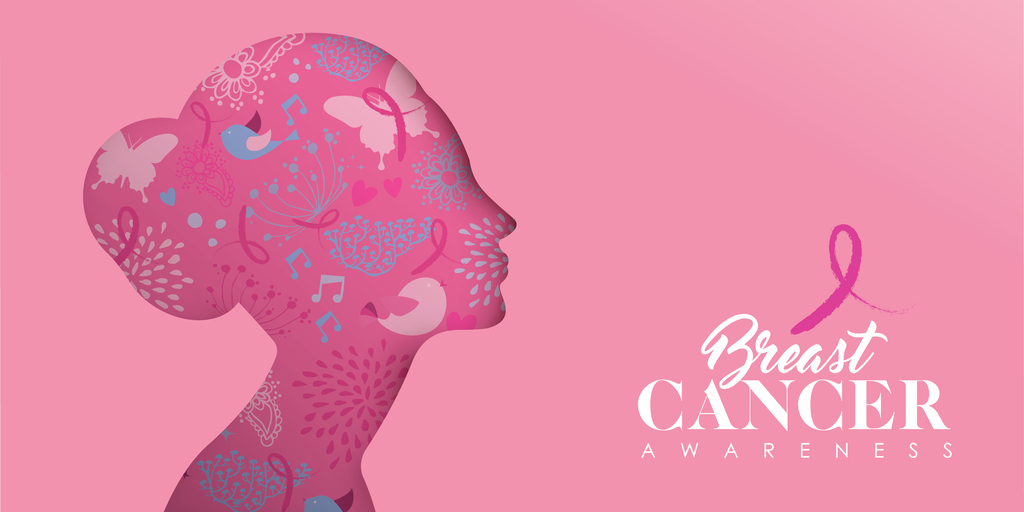
28 Oct 2020
Breast Cancer awareness month
October is the Breast Cancer Awareness month. It is estimated that 19,800 women will be diagnosed with breast cancer in Australia this year. Our practice would like to raise more awareness of breast cancer. According to the National Breast Cancer Foundation (NBCF) this year 3,000 will lose their life – 8 every day. In Australia, 55 Australians are diagnosed every day. Screening programs are designed for people without any signs or symptoms. Early detection will save lifes.
What are the symptoms of breast cancer?
The symptoms of breast is the abnormal growth of the cells lining the breast lobules or ducts.
Breast changes that may indicate breast cancer include:
- a new lump or lumpiness, especially if its only in one breast
- a change in the size of shape of breast
- a change in the nipple, such as crusting, redness, ulcer or inversion
- a bloody discharge from the nipple that occurs without squeezing
- a change in the skin of the breast such as redness or dimpling
- an unusual pain that doesn’t go away
Causes of breast cancer
- Being a woman
- Ageing
- Late menopause
- Family history
- Inheritance of mutations in the genes BRCA1 and BRCA2(more common with Ashkenazi Jewish heritage) and CHEK2
- Ethnicity Women from different ethnic backgrounds have varying rates of risk for breast cancer. Caucasian and Jewish women are among the highest; Asian women among the lowest rates for mammary cancer.
- Previous breast cancer diagnosis
- Past history of certain non-cancerous breast conditions
- Dense breast
Lifestyle factors that can also slightly increast the risk of breast cancer in men and women include:
- being overweight
- not enough physical activity
- drinking alcohol
Health Checks – Screening Programs
Screening programs are designed for people without any signs or symptoms. This will help saves lives by finding breast cancer early. So even if you feel healthy, it’s wise to keep up to date with your appointments. Early detection and treatment can improve cancer survival.
Mammography is recommended screening tool for early detection of breast cancer. The government’s national screening program, Breast Screen Australia, invites women aged 50 to – 74 to undergo free mammograms every two years. Women aged 40 to – 49 and those aged over 74 can also be screened free of charge, however they are not sent invitation letters.
In order to stay in good health and identify possible health issues at an early stage, it is important for women to have regular health checks. There are a number of specific tests that you should make part of your regular routine
Prevention
If you’re a adult and you live to the age of 85, your risk of getting breast cancer over your lifetime is 1 in 7 or about 14 per cent. There are many factors that contribute to an individual’s chance of developing this type of cancer over another’s. Some are risks we can reduce based on lifestyle factors. Other risks, like being a woman and getting older, are ones we have no control over.
Ways to Reduce Risks
- Reduce your alcohol intake: Research has shown a strong link between alcohol and the risk of developing breast cancer, or cancer returning. Limit alcohol intake to two standard drinks a day.
- Maintain a healthy weight throughout your life: Women who put on a lot of weight in adulthood, particularly after menopause, may have a higher risk of mammary cancer.
- Be active: Regular exercise reduces the risk of this type of cancer.
- Have children early and breastfeed if you can: Not having children or having children later in life can increase your risk of developing this type of cancer. Having more children early in life and breastfeeding (for 12 months or more) provides long-lasting protection from breast cancer.
- Eat well: A healthy diet, of at least five serves of vegetables and two serves of fruit a day, may help to reduce your risk of cancer.
- Try not to stress: People under stress often develop certain behaviours (such as smoking, overeating, or drinking alcohol) which increases their risk of cancer.
- Don’t smoke: A landmark US study demonstrated a strong association between active smoking and breast cancer risk. This was specifically evident for women who had started smoking at a very early age and before their first pregnancy. Smoking should always be avoided to prevent a range of diseases and to maximize health and well-being.
How research is making a difference to cancer of the breast risk
Breast-cancer researchers are working towards saving lives through more effective treatments and earlier detection, and many are also seeking ways to better understand who is at risk and how this type of cancer can be prevented in the first place.
The NBCF funds research into breast cancer risk and prevention, such as:
- Better knowledge of the impact of lifestyle on mammary cancer risk
- Understanding of risk in order to develop more effective treatments in future
- Gaining a better understanding of the genetic and nongenetic factors that affect mammary cancer, to enable better monitoring, detection and treatment of those at high risk of developing the disease
Conclusion
Early detection of mammary cancer provides the best chance of survival. From knowing your risk of checking for symptoms, it’s important to be informed, aware and proactive.
You can read more about the research NBCF is funding to better understand and improve the outcomes for cancer of the breast here.
Keep up to date with health checks
At Dee Why Medical Centre we provide a comprehensive range of services for your medical and healthcare needs. Bulk billing is available. Get to know our General Practitioners: